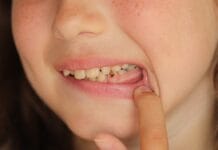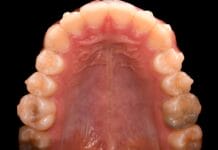As dental hygienists, we are constantly seeking evidence-based information to guide our practice and educate our patients about oral health. One crucial topic that has been widely debated is the impact of fluoridated water on child development.
A recent Australian nationwide population-based follow-up study sheds light on this important subject. The study, conducted by Professor Loc Do and colleagues from the University of Queensland Faculty of Health and Behavioral Sciences, School of Dentistry, explored the potential effects of early exposure to fluoridated water on a child’s emotional and behavioral development and executive functioning.1
The Study
To investigate this matter thoroughly, the researchers used data from Australia’s National Child Oral Health Study of 2012-2014. The study followed a longitudinal approach, tracking children aged 5-10 years at the baseline and contacting them again after 7-8 years before they reached 18 years of age.1
The team estimated the lifetime exposure to fluoridated water (%LEFW) from birth to the age of five years, using residential history and postcode-level fluoride levels in public tap water. The Strength and Difficulties Questionnaire (SDQ) was employed to assess emotional and behavioral development, while executive functioning was measured using the Behavior Inventory of Executive Functioning (BRIEF).1
The researchers used multivariable regression models to compare the associations between fluoridated water exposure and the primary outcomes, controlling for covariates. Additionally, they conducted an equivalence test to compare the outcomes of children with 100% LEFW to those with 0% LEFW.1
The Results
The study included 2,682 children who completed the SDQ and BRIEF assessments. The mean scores for emotional and behavioral development were 7.0 (95% CI: 6.6, 7.4) and 45.3 (44.7, 45.8), respectively. Interestingly, children with lower %LEFW tended to have poorer scores on the SDQ and BRIEF. However, the multivariable regression models revealed no significant association between exposure to fluoridated water and the scores on SDQ and BRIEF.1
The researchers also conducted sensitivity analysis and found that exposure to fluoridated water during the first five years of life did not lead to altered measures of child emotional and behavioral development and executive functioning. Moreover, children who had been exposed to fluoridated water throughout their early childhood had emotional, behavioral, and executive functioning measures at least equivalent to those of children with no exposure to fluoridated water.1
This study offers valuable insights. It provides evidence to support the continued use of water fluoridation as an effective measure in preventing dental caries. Importantly, the research demonstrates that exposure to fluoridated water during the early years of life has no negative impact on a child’s emotional and behavioral development and executive functioning. This information can be reassuring to parents and caregivers who may have concerns about the potential effects of fluoridation.1
Conclusion
As dental hygienists, we play a vital role in promoting oral health and disseminating accurate information to our patients and communities. The study discussed here provides robust evidence that exposure to fluoridated water is safe and does not negatively affect a child’s emotional and behavioral development and executive functioning.
Armed with this knowledge, we can confidently advocate for water fluoridation as a significant public health measure that benefits individuals from all walks of life, including lower socioeconomic communities, ultimately reducing health inequalities. Let us continue to rely on evidence-based research to guide our practice and improve oral health outcomes for all.
Before you leave, check out the Today’s RDH self-study CE courses. All courses are peer-reviewed and non-sponsored to focus solely on pure education. Click here now.
Listen to the Today’s RDH Dental Hygiene Podcast Below:
Reference
- Do, L.G., Spencer, A.J., Sawyer, A., et al. Early Childhood Exposures to Fluorides and Child Behavioral Development and Executive Function: A Population-Based Longitudinal Study. Journal of Dental Research. 2023; 102(1): 28-36. https://doi.org/10.1177/00220345221119431











